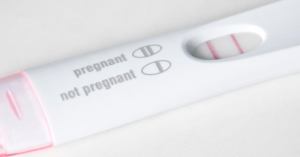A voice that shaped British radio for nearly six decades has fallen silent on the anniversary of his final live broadcast. Johnnie Walker, the legendary BBC radio presenter who entertained millions across a 58-year career, died Tuesday at 79 following a long battle with pulmonary fibrosis, which causes scarring of the lungs. His passing comes just two months after his retirement from broadcasting, per the BBC.
BBC Director General Tim Davie celebrated Walker as a “pop radio pioneer and a champion of great music,” noting that “no-one loved the audience as much as Johnnie, and we loved him back,” according to Deadline.
Videos by PopCulture.com
His wife, Tiggy Walker, marked the timing of his passing, per the BBC: “What a day to go. He’ll be celebrating New Year’s Eve with a stash of great musicians in heaven. One year on from his last live show. God bless that extraordinary husband of mine who is now in a place of peace.”
Radio 2 head Helen Thomas described him as “a much-loved broadcasting legend” whose shows Sounds of the 70s and The Rock Show were “appointments to listen to.” She added, per Deadline, “Johnnie’s wry sense of humour and his warm, open style of presenting ensured he was adored by his audience. The airwaves simply won’t be the same again.”
Traffic presenter Sally Boazman, who worked alongside Walker during his drivetime show from 1999 to 2006, praised him as “really great in the way that he presented, he had a great voice, he knew his music inside out, he was the real deal,” according to the BBC.
Fellow broadcaster Shaun Keaveny called him “a rebel, a soul searcher and a seeker, a rocker, a phenomenal broadcaster,” adding, “He absolutely lived life to the limit. It was a total privilege to have worked with him.”
Walker’s career began in 1966 on Swinging Radio England, an offshore pirate station, before joining BBC Radio 1 in 1969. On his lunchtime Radio 1 show, launched in 1971, he championed artists like Steve Harley, Lou Reed, Fleetwood Mac, The Eagles, and Steely Dan. After time in California during the 1970s, he returned to Radio 1 in 1987 before moving to Radio 2 in 1997, the BBC reports.
In 2003, while hosting Radio 2’s drivetime slot, he underwent chemotherapy and emergency surgery for non-Hodgkin’s lymphoma, during which he reportedly “died” three times on the operating table, according to the outlet.
His final broadcast in October addressed his struggle with pulmonary fibrosis after reading a letter from a listener whose father had died from the same condition. “The struggles I’ve had with doing the show and trying to sort of keep up a professional standard suitable for Radio 2 has been getting more and more difficult,” he explained, adding it would be “very strange not to be on the wireless anymore.”
His poignant farewell concluded: “Thank you for being with me all these years and take good care of yourself and those you love, and may we walk into the future with our heads held high and happiness in our hearts. God bless you.”
Walker is survived by his wife Tiggy and his children. The BBC announced plans to honor his legacy with tribute programming and a collection of shows celebrating his life and career on BBC Sounds.








